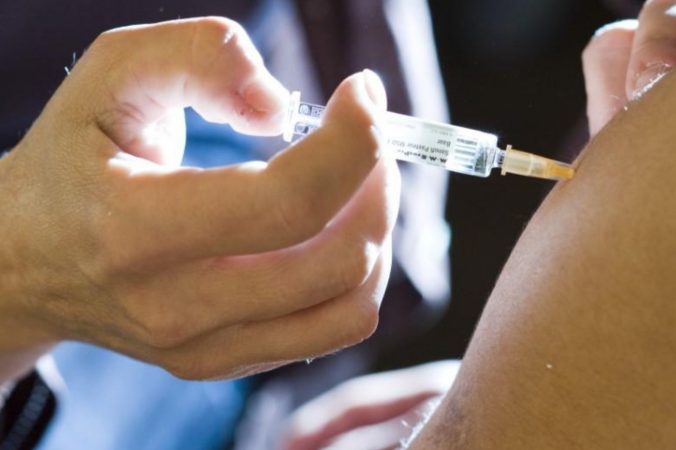
Medicine Cabinet
By Teodoro B. Padilla

Public health officials and scientific experts decide who in their country or region will get the vaccines first, and there may be differences in their prioritization. While there are still limited supplies of coronavirus disease 2019 (COVID-19) vaccines, the World Health Organization (WHO) and health authorities have recommended prioritizing the following groups: (1) people who have a higher chance of exposure to the virus; and (2) people who have a higher chance of having severe COVID-19 illness. (“COVID-19 Vaccines FAQs,” International Federation of Pharmaceutical Manufacturers & Associations, March 2021)
In line with these recommendations, the Interim National Immunization Technical Advisory Group for COVID-19 Vaccines has come up with a list of priority population groups. The top three in the list are (A1) frontline workers in health facilities both national and local, private and public, health professionals and non-professionals like students in health and allied professions courses with clinical responsibilities, nursing aides, janitors, barangay health workers, etc.; (A2) senior citizens aged 60 years old and above; and (A3) persons with comorbidities.
A number of local government units have started their vaccination rollout for priority groups, including senior citizens.
HOW WELL DO COVID-19 VACCINES WORK IN OLDER PEOPLE?
During most COVID-19 vaccine clinical trials, people of different ages took part to confirm the vaccines’ safety profile and effectiveness in older age groups, who are most at risk of serious illness and death from COVID-19. Extremely frail older persons and persons above the age of 95 years were not included in clinical trials. Most of these trial results showed high levels of effectiveness in different age groups, including in some cases those over age 65.
When deciding to get vaccinated or not, older adults should remember that they have been disproportionally affected by the COVID-19 pandemic. They have a higher chance of needing hospital care or dying if they get COVID-19 compared to younger adults. The chance of severe illness with COVID-19 goes up with age, with older adults at the highest risk. The greatest risk for severe illness from COVID-19 is among those aged 85 or older.
This is why the WHO has identified older adults as a priority group to get the vaccine. While vaccination is recommended for older persons due to the high risk of severe COVID-19 and death, very frail older persons should be individually assessed. If there are concerns, it is always best to talk to your doctor about whether or not you should get a COVID-19 vaccine.
HOW WELL DO COVID-19 VACCINES WORK IN PEOPLE WITH LONG-TERM ILLNESS OR WEAKENED IMMUNE SYSTEMS?
According to the WHO, people with underlying medical problems like high blood pressure, heart and lung problems, diabetes, obesity, or cancer, are at higher risk of having serious illness from COVID-19.
Clinical trials are designed to assess all races, genders, different ages, as well as people with well-controlled underlying health conditions, such as diabetes or heart disease. However, as with other vaccines, clinical trials for COVID-19 vaccines do not include people with weakened immune systems, such as people who are undergoing chemotherapy or bone marrow treatment. As COVID-19 vaccines are put into widespread use, safety and effectiveness data will continue to be collected, analyzed, and reported for all populations, including people with conditions that suppress their immune response.
While COVID-19 vaccination might provide a lower level of protection in people who are immunocompromised compared with the rest of the population, it is still very important to get vaccinated, as well as continue washing hands, using social distancing, and wearing a mask even after getting a vaccine.
Some types of COVID-19 vaccines may be more suitable than others for people with weakened immune systems. If there are concerns, the advice is to always consult your doctor.
Vaccines are not the only way to stop the virus, but they are one of our best chances of returning to normal. The current COVID-19 pandemic is a global crisis, with devastating health, social, and economic impacts. COVID-19 vaccines are a long-term solution to tackle the virus.
The more people get COVID-19 vaccines, the more successful we will be at: (1) helping to stop the spread of the virus and protecting our communities; (2) lowering the number of COVID-related hospitalizations and deaths and helping to protect our health systems; and (3) allowing people and businesses to get back to normal.
We know from the past that vaccines are very important to public health and provide great value to society. The WHO estimates that vaccines currently save about 2 to 3 million lives each year globally.
Teodoro B. Padilla is the executive director of the Pharmaceutical and Healthcare Association of the Philippines (PHAP). PHAP represents the biopharmaceutical medicines and vaccines industry in the country. Its members are at the forefront of research and development efforts for COVID-19 and other diseases that affect Filipinos.